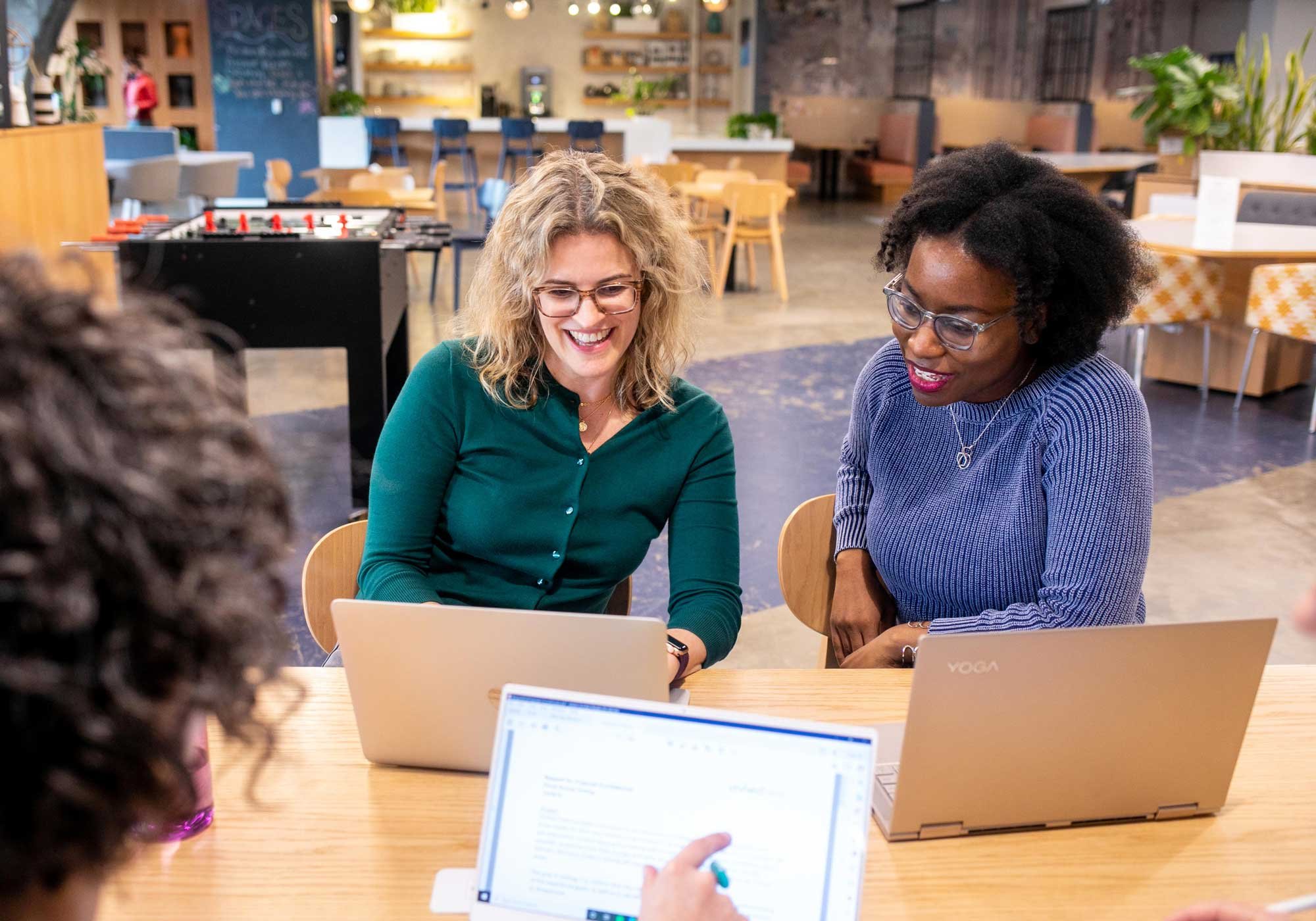
A space for our community to learn alongside us
Insights | Publications | Tools
The latest from our team
How the Myth of Museum Neutrality Shapes Museum and Evaluation Practice
About two years ago, my colleague Amanda Krantz wrote about the problematic assumption that museums are inherently “trusted” institutions. I was recently considering how this idea of “trust” connects to other mythology surrounding museums, including the idea that they are the Switzerland of non-profit organizations—“neutral”—an idea that was brought to the forefront in 2017 with the Museums are Not Neutral Campaign created by LaTanya Autry and Mike Murawski. In a 2023 MuseumNext post, the author quotes Murawski as saying “Museums have the potential to be relevant, socially-engaged spaces in our communities. Yet, too often, they strive to remain ‘above’ the political and social issues that affect our lives – embracing a myth of neutrality.”
Three Reasons I’m an AI Skeptic
With increasing conversations around artificial intelligence (AI) and how we can use AI tools in our work, I constantly find myself apprehensive of what new waves of AI technology (like generative AI) are offering. Don’t get me wrong though—I’m all for technological advancement and I fully understand that AI is already around us, but I’ve been finding it hard to fully get behind the usage of AI in mainstream fields. Most of my apprehension comes from ethical and justice issues that, in my opinion, organizations and companies are ignoring. My main issues with incorporating AI technology into client work can be summarized into the following categories.
Communicating with Intention: Activities and Techniques for Strengthening Community Partnerships
In my last post, I asked how museums might create meaningful and fulfilling community partnerships and I offered my musings to this question. This month, I return to briefly consider a few activities and techniques geared toward establishing and strengthening community partnerships. Again, as museum staff, how do you “build genuine, reciprocal relationships with your visitors and local organizations? How do you work toward a common goal with your local community?” Below, I explore how using metaphors and walk-and-talk conversations might help those involved in community partnerships (primarily museum staff and community partners) communicate the more intangible aspects of “community” and ground their collaborations in shared understandings.
When You’re the Researcher AND Participant: The Benefits of Collaborative Research
I’ve been a fan of collaborative research ever since I learned about it when working on my dissertation on the role of Whiteness in the gallery teaching practices of White art museum educators (like myself). Initially, I was trying to study Whiteness through a traditional approach, where I developed study questions, recruited participants (other White museum educators), designed instruments, and analyzed data on my own. But several months into data collection, my findings just weren’t addressing my questions with the richness that I expected. I finally realized: I need to examine Whiteness by critically examining it in myself.
Four Steps to Confronting Orientalist Approaches in the Museum
Perhaps one of the most glaring examples of orientalism and otherization in Western art museums is the omittance of nuance, detail, and breadth in exhibitions featuring objects, art, and ideas originating from non-Western cultures. Much of this stems from orientalism. When grand art galleries have curated exhibitions with varying degrees of complexity and specificities all around European art, but just one section set aside for an exhibit that checks off the DEAI box, it is obvious that museums not only have a problem with orientalism, but that their attempts to grow beyond the confines of an imperialist and orientalist past are weak. Here are some ways for art and history museums to confront orientalist approaches when curating exhibitions and galleries on non-Western art.
Expanding Accessibility in Museums: A Conversation with Ross Edelstein
We recently interviewed Ross Edelstein, a pioneer in the museum industry in creating accessibility on all levels. Ross is autistic, and brings his lived experience into the lens of his work with museums and accessibility. Below are some key themes from our conversation that are great ideas to incorporate into your own accessibility work.
Expanding Accessibility in Museums: A Conversation with Finnegan Shannon
I sat down with Finnegan Shannon, a disabled artist and activist, to get a better understanding of their perspective on disability and accessibility in museum and art spaces. I was drawn to their work entitled “Do You Want Us Here Or Not” which critiqued the lack of places for rest in museums, ultimately creating inaccessible spaces. Below are a few themes we explored in our conversation.
Expanding Accessibility in Museums: A Conversation with Christena Gunther
Christena Gunther, founder and president of Cultural Access Collaborative (formerly Chicago Cultural Accessibility Consortium), sat down with me to delve into what creating accessibility and inclusivity within museums and cultural institutions can look like.
Orientalism 101
As someone who has a background in anthropology and cultural studies, understanding orientalism is something that has become embedded in my approach to not only academic study, but to everyday life.
How I Pursue Care Ethics in My Work
At this year’s National Art Education Association National Convention (NAEA), I presented (although not in person as intended) as part of a session called “The Ethics of Care: Love, Morals, and the Future of Museum Education.” As my former professor Dana Carlisle Kletchka described in our presentation, the Ethics of Care, or Care Ethics, is a philosophical approach to morals developed in the 1970s with feminist roots.
The Benefits of Budget Transparency in RFPs
In recent years, the museum field, like much of the nonprofit world, has faced a reckoning when it comes to salary transparency and equity, sparking change across the industry.
Listen Up Museums! Black History Month Edition
February is Black History Month. And while the responsibility of acknowledging the often overlooked contributions of Black people and inequities they face is a daily endeavor, February offers us an annual opportunity for organizations (particularly predominantly white ones) to look inward and consider whether they are living up to their anti-racist ideals.
A Cautionary Tale About Audiences and Assumptions
Most museums have a generalized notion of their audiences. They may broadly refer to “families,” “empty nesters,” “locals,” and “tourists.” But those broad categories tell us very little about what audiences value, care about, and believe in.
What’s Going on Here? Considering the Anti-Racist Possibilities of Visual Thinking Strategies
This article, co-written by three art museum educators and Visual Thinking Strategies (VTS) coaches, explores VTS’ potential as an anti-racist teaching tool.
Can We Please Stop Saying that Museums are “Trusted”?
It’s been about a year since the American Alliance of Museums (AAM) and Wilkening Consulting published “Museums and Trust 2021.” The report states that museums continue to be regarded as “highly trustworthy.” This statement made me uncomfortable last year and continues to bother me now.
Beyond The ADA: Creating Truly Disability-Friendly Museums
The fight for the Americans with Disabilities Act (the ADA) was long, hard, and demanding. Thanks to the incredibly taxing work of disabled activists for decades leading up to the eventual passing of the ADA in 1990, Americans with disabilities have more protections than ever before.
Why Museums Should Embrace “Lived History”
There is a beauty in seeing history that is actively lived in, structures that are actively used rather than sitting behind a glass wall in a museum, tethered away from the lands where they were constructed.
Lessons Learned: Understanding DEAI as a Daily Practice
As we look toward 2022 and beyond, many museums are working to implement their new or existing missions, values, and initiatives that embrace and foreground diversity and inclusion.
How Museums Can Nurture Diverse Talent
A discussion between SLAM’s Chief Diversity Officer and Fellowship Director, Renée Brummell Franklin, and Kera Collective Founder Stephanie Downey.
Anti-racism Pledge: 7-month Update
Seven months ago, RK&A committed to anti-racist practice. To hold ourselves accountable, we write these updates to publicly document the work we have been doing and work still to do.










